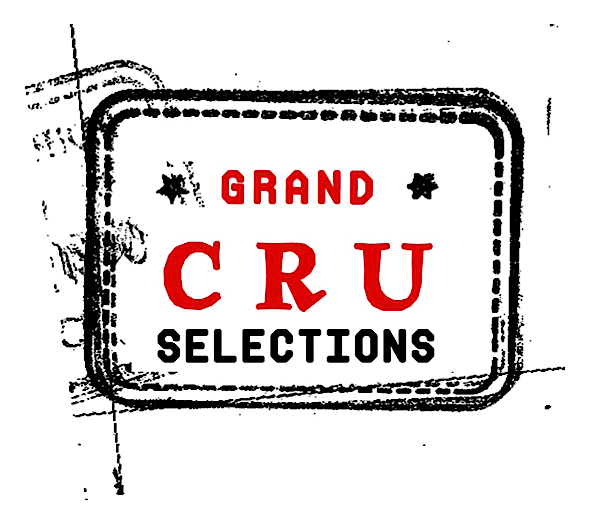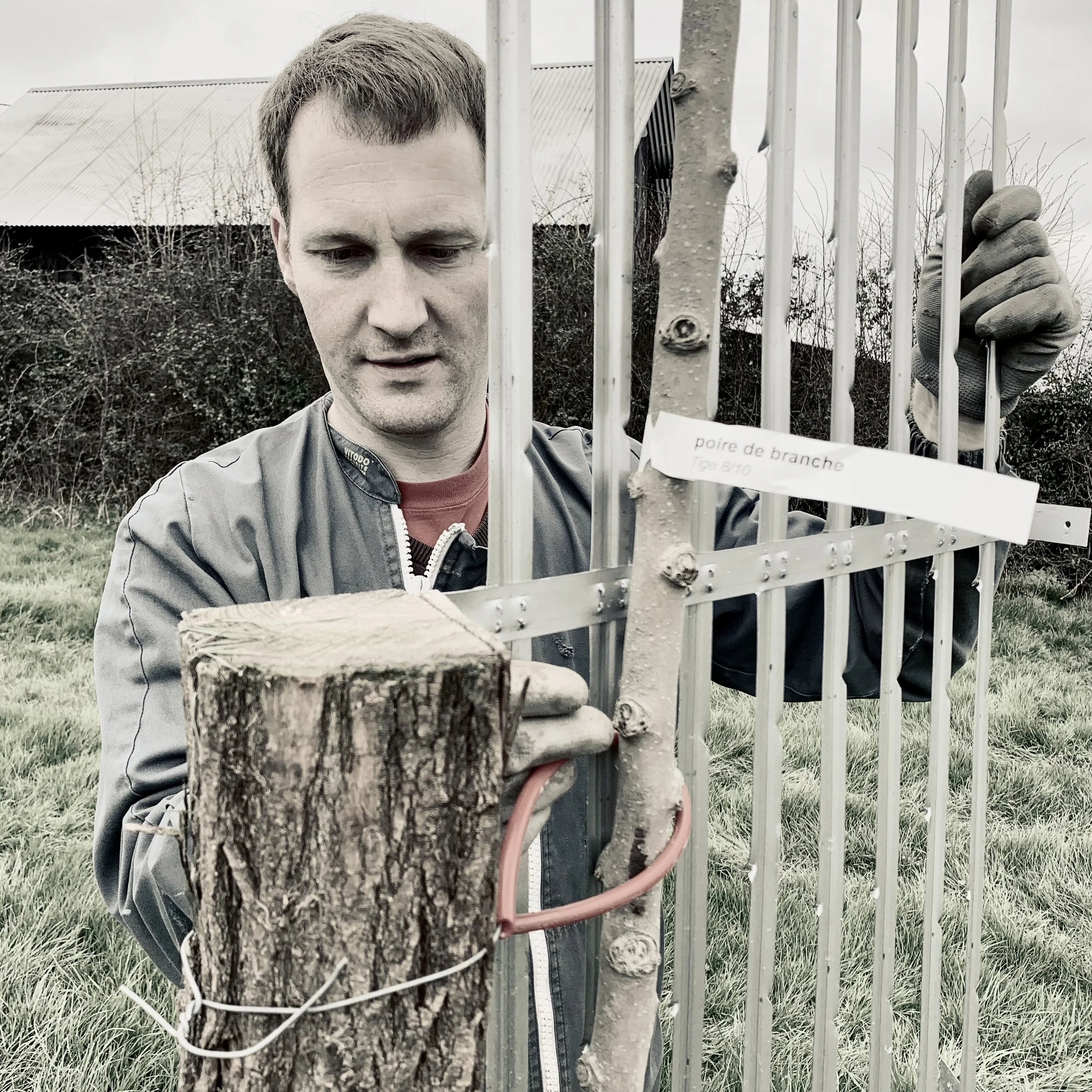Domaine Lesuffleur
La Folletière-Abenon, Normandy, France
Benoit Lesuffleur
The Lesuffleur family have grown apples and produced cider in Normandy for generations. Benoit learned his craft from his grandfather, Roger Lesuffleur - a well-reputed cidermaker in the Pays d’Auge and the first to sell the family’s cider commercially. However, his father was less focused on continuing the family business, preferring to make cider to enjoy at home with family.
So Benoit moved away, finished his studies and built a successful business as a wine agent in Paris, representing many top estates in Champagne and Burgundy. Inspired by these winemakers he worked so closely with, he realized his childhood ambition - to be a cidermaker like his grandfather.
After finally convincing his parents he was on to something, he returned home on weekends to oversee the management of his family apple orchards and in 2012, produced his first vintage of Domaine Lesuffleur cider. Today, he’s taken on some of the best varieties from his family’s orchards, using a wide range of heritage apples & pears, and creating vinous blends that balance sweet, bitter, and tannic varieties.
Tasting Benoit’s range of ciders for the first time back in our office on West 19th Street had this motley cru all salivating and convinced there was a place for “cidre” in our wine-centric portfolio.
-
Benoit went to school in Paris and still lives there during the week. His “day job” is as a wine agent, representing a strong portfolio of growers from Champagne, Burgundy, Bordeaux and the Loire Valley inspired him to get back to his roots in Normandy and start his own cider project, Domaine Lesuffleur.
Since he began overseeing the management of his family’s orchards in 2012, he has slowly converted all farming to organic practices. His range of ciders focuses on site-specific expressions of the heritage apple and pear varieties grown specifically in his region of the Pays d’Auge.
-
The orchards are planted in the clay valleys of the Pays d’Auge (Calvados), with large deposits of brown and blue flint over chalk clay, with a shallow depth of soil. These soil types combined with local varietal diversity and regular rainfall promote the natural richness of sugars in the apples producing soft, round ciders rich in tannin.
-
Benoit continues to work in an organic way and will be certified in 2023. Committed to preserving the big diversity of ancient apple varietals from his grandfather’s orchard, he began an extensive replanting project in the Friardel orchard using massale selection. During six months of the year, the cows from his parent’s dairy farm live and graze in the Friardel orchard further maintaining environmental sustainability. Most recently, bee hives were installed along the Folletiere orchard to further contribute to the biodiversity of the terroir.
-
Apples are hand-picked and selected for maturity, followed by meticulous sorting before pressing. Indigenous yeast fermentation. He uses traditional keeving method, which ensures a long slow fermentation leaving a little residual sugar and without without fear of excessive re-fermentation later.. 3-4 rackings and light filtration.
Indigenous yeast fermented in bottle (ancestral method). Extended aging on lees (dependent on vintage and cuvée).
Ciders
La Folletière
La Folletiere is a low-branched orchard, planted in 1996 by Benoit’s father, Gilbert in soils of brown flint and clay with a chalk bedrock. He does a hand selection of apples each harvest, generally a selection of about about 10% of the orchard’s best output (due to space limitations in his cellar).
A blend of up to 12 different heritage apple varieties from this single orchard. Each apple is used to a varying degree in order to produce a harmonious cider. The final blend is approximately 25% acidic/sharp apples (Rambeau, René Martin…), 50% bittersweet apples (Bedan, Binet Rouge…), and 25% bitter apples (Mettais, Frèquin…).
The apples are hand-harvested and fermented using indigenous yeasts. It is made using méthode ancestrale and it ages for 3 years minimum on its fine lees in bottle. The dosage varies according to the vintage but it is usually in the 35-40 g/L range.
Friardel
Friardel is a high-branched orchard planted in soils of blue flint and clay with a chalk bedrock. The orchard has been maintained by Benoit’s grandfather, Roger since 1965 and continuously farmed by his family since. These trees are planted at a much lower density than the other orchards, just 100 to 150 trees per hectare. The average age of the apple trees is 50 years old. A blend of heritage apples with a larger percentage of bitter varieties - 49% bitter (Mettais, Frèquin...), along with 36% bittersweet (Binet Rouge, Bisquet), 15% sharp (Rambeau, René Martin).
Indigenous yeasts for both fermentations, bottled by gravity, 12 months on fine lees in bottle, disgorged.
Missùs
This is a special cuvée that is only released in certain vintages. A selection of only sharp apples from his two orchards in Friardel and Folletiere, which is generally not allowed under the Pays d'Auge appellation rules. It sees an additional year of aging on the lees in bottle before disgorgement. It has Riesling-like acidity balanced by the texture from extended aging on the lees (around 30 months).
Cerqueux
Benoit's first pear cider cuvée. This comes from his uncle's orchard in the village of Cerqueux (which is about a 5 minute drive north of Friardel). The orchard is interplanted with old heritage pear varieties, some of which have not yet been identified. Soil is pure silt over clay. The predominant fruit comes from one large tree in the orchard, Grises des Lisieux, which is estimated to be around 150 years old. 2017 is the first vintage released. 24 months on lees in bottle.
Friardel Poire
Sourced from a single high-branched pear tree, over 200 years old in the Friardel orchard. This variety is unknown. Planted on clay flint over chalk soils. In 2020, Benoit replanted a few rows of a native Pays d’Auge pear variety, “Grise de Lisieux” surrounding this tree, which likely will not produce fruit for another 50 years. SO for now this cuvée is miniscule.

